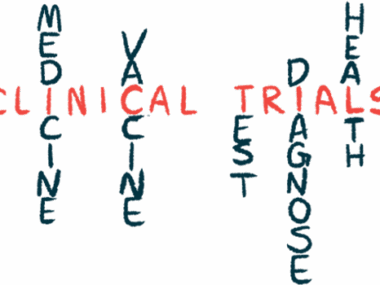Safety board: Efzofitimod Phase 3 trial can continue; enrollment to end
EFZO-FIT is seeking up to 264 adults with pulmonary sarcoidosis
Written by |

EFZO-FIT, a Phase 3 trial that’s testing treatment candidate efzofitimod in people with pulmonary sarcoidosis, is continuing following a pre-planned interim safety review, with enrollment expected to finish in the first half of 2024.
A data safety and monitoring board (DSMB) examined the trial’s available safety and tolerability data, including from participants who’d completed treatment, and found no serious medication-related side effects, according to aTyr Pharma, the therapy’s developer.
The board determined the therapy posed no significant risks and the trial could continue as is, without added safety measures needing to be implemented. DSMBs are made up of an independent group of experts who conduct interim analyses to ensure participant safety and data integrity, and advise on trial modifications as necessary. These pre-planned analyses are standard clinical trial practice.
EFZO-FIT (NCT05415137) is seeking up to 264 adults, ages 18-75, with pulmonary sarcoidosis at more than 70 sites in the U.S., Europe, and Japan. Sites in Brazil are expected to open in the future.
“We had a positive data and safety monitoring board (DSMB) review for our global pivotal Phase 3 EFZO-FIT study in patients with pulmonary sarcoidosis, a major form of ILD [interstitial lung disease] with high unmet medical need,” Sanjay S. Shukla, MD, president and CEO of aTyr, said in a company press release. “Based on current projections, we expect to complete enrollment in this study early in the second quarter of 2024.”
ILDs make up a group of lung diseases marked by inflammation and scarring, or fibrosis, in the lungs, and include pulmonary sarcoidosis.
What does efzofitimod do?
In sarcoidosis, inflammatory cells form small clumps, called granulomas, in tissues. In pulmonary sarcoidosis, granulomas form in the lungs, causing inflammation and tissue damage that drives fibrosis and makes breathing difficult.
Treatment options are limited, with most patients relying on anti-inflammatory and immunosuppressive corticosteroids. A number of potentially serious side effects can result from this treatment, however.
Formerly ATYR1923, efzofitimod is a first-in-class immunomodulating medication being developed for several forms of ILD. It works to selectively modulate the activity of NRP2, a protein on the surface of certain immune cells involved in granuloma formation and inflammation.
Delivered intravenously into the bloodstream, efzofitimod should help restore a more normal immune balance, reducing inflammation without completely suppressing immune responses. The company believes this will help improve lung function and resolve symptoms associated with pulmonary sarcoidosis and other ILDs.
A now completed Phase 1b/2a trial (NCT03824392) evaluated the safety and preliminary efficacy of three intravenous doses of efzofitimod (1, 3, and 5 mg/kg) versus a placebo, given once a month for at least six months. Participants also received daily oral corticosteroids, the dose of which were tapered in the first eight weeks.
Efzofitimod lessened symptoms, improved lung function, and reduced the need for corticosteroids. Additional analyses from the trial and a previous Phase 1 study of healthy volunteers indicated higher efzofitimod exposure led to greater benefits.
A more recent Phase 1b/2a trial analysis supported that idea. Specifically, after corticosteroid were tapered, participants given the highest doses of efzofitimod (3 and 5 mg/kg) had significantly lower rates of relapse, or the need to again increase corticosteroid use, than the pooled group of patients on the lowest dose (1 mg/kg) or a placebo.
Higher dosed patients also saw significantly greater gains in lung function and other patient-reported outcomes.
In EFZO-FIT, which began dosing last year, participants are being randomly assigned to receive either of the two therapeutic doses of efzofitimod (3 or 5 mg/kg) or a placebo once a month for about a year. All the participants will be on corticosteroids, which will be tapered off during the trial.
The main goal is to evaluate the therapy’s impact on corticosteroid dose reduction, with secondary measures including changes in lung function and sarcoidosis symptoms. It’s expected to finish in 2025.
Meanwhile, aTyr is advancing efzofitimod’s development for other forms of ILD, including those associated with systemic sclerosis or rheumatoid arthritis.






